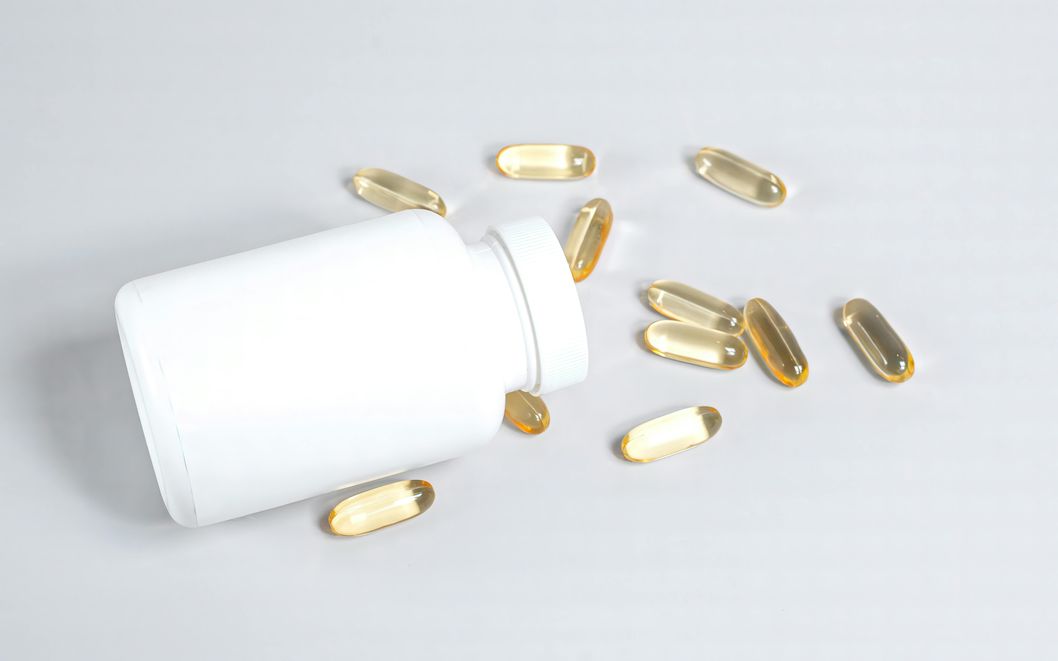
Collagen and Fasting: Does Collagen Break Your Fast?
Ladies, let's talk about that little sprinkle of collagen powder you've been adding to your morning coffee. Have you ever wondered if it could be sabo...

Ever since starting intermittent fasting, one burning question keeps coming up: Can I still take my daily omega-3 fish oil supplement without breaking my fast?
As someone obsessed with nutrition science, I had to get to the bottom of this. I researched studies, consulted experts, and put myself to the test to understand if omega-3s are “fast approved” or not.
In this article, I’ll break down everything you need to know, including concerning ingredients to avoid, how pure an omega-3 supplement needs to be, and which specific products get the green light for fasting.
You’ll also get the scoop on the shocking lack of quality control in the supplements industry.
Consider this your guide to taking omega-3s without sacrificing your intermittent fasting results. I’ve done the research - so you don’t have to!
If you’re following an intermittent fasting protocol, you know that the key is to go an extended period of time without consuming any calories. This allows your body to tap into fat stores for energy and initiate processes like autophagy during the fasting periods. However, many women wonder if taking supplements like fish oil or other omega-3 sources will break their fast.
The short answer is: it depends on the type and amount of omega-3 supplement. Pure fish oil, krill oil, or other supplements that contain only the omega-3 fatty acids EPA and DHA and no other ingredients should not break a fast. That’s because these isolated fats do not provoke an insulin response, spike blood sugar levels, or contain digestible calories.
However, many omega-3 supplements add other ingredients like flavors, fillers, or binding agents that could potentially contain small amounts of calories or digestible carbs/proteins. These “impurities” might technically break a fast, even if the amounts are very small.
For example, some fish oil supplements contain:
Additionally, some omega-3 supplements come in the form of “fish oil liquids” or other delivery formats that may use higher calorie ingredients as carriers. For example, one popular fish oil liquid contains 20 calories and 2 grams of carbs per teaspoon serving from glycerin.
To be on the very safe side during a fasted period, your best options are:
It’s wise to read labels very carefully. Avoid omega-3 supplements with added flavors, fillers like maltodextrin, binding agents like glycerin, or calories from ingredients other than the pure EPA/DHA fats. Studies found that over 50% of fish oil supplements contained oxidized oils or potentially harmful impurities.

When it comes to omega-3 fish oil and other supplement products, you may be getting more than you bargained for in that pill. The supplement industry is essentially unregulated, and repeated studies have revealed a staggering lack of quality control.
Jacob M. Handsa and his team tested 72 different fish oil supplements. TThe researchers discovered that 68% (or 23 out of 34) of the flavored supplements and 13% (five out of 38) of the unflavored ones exceeded the TOTOX (total oxidation value) upper limit set by the Global Organization for EPA and DHA, which measures oxidation in the supplements — meaning they had oxidized and were rancid.
This indicates that many fish oil manufacturers are cutting corners and failing to use proper quality control or fresh ingredients. Oxidized fish oils can actually be detrimental to your health rather than beneficial.
8% of fish oil supplements contained detectable levels of toxic compounds like PCBs, flame retardants, and heavy metals. These contaminants can potentially negate any health benefits and cause direct harm.
With the dietary supplement industry essentially self-regulated, the burden falls on consumers to meticulously research and vet brands for quality and accuracy. Third-party certifications like USP, NSF, and ConsumerLabs provide some quality assurance but may not catch everything.
If you do consume omega-3 supplements with minimal “impurities,” it likely will not significantly impact your fast or inhibit benefits like weight loss and autophagy - as long as the calories are under 10-20 per serving. For example, taking a fish oil capsule containing up to 5 calories from glycerin would likely have a negligible impact on ketosis or autophagy during a 16-hour fast.
However, many intermittent fasters prefer to play it ultra-safe by sticking only to pure, triglyceride-form fish oil or krill oil during their fasted windows to avoid any insulin spikes or calorie intake. A 2020 survey found that 73% of women following an intermittent fasting diet avoided all supplements during their fasted periods.
At the end of the day, high-quality omega-3 fatty acid supplements can be a great complement to an intermittent fasting lifestyle due to their anti-inflammatory benefits and support for heart and brain health. The recommended daily intake is around 500-1,000 mg of the EPA and DHA omega-3s. Just be sure you’re choosing the most purified sources to stay in a fasted state. Always discuss supplements with your doctor, read labels carefully, and experiment to see what allows you to best adhere to your intermittent fasting protocol.
A: Not necessarily. Highly purified fish oil and krill oil supplements that contain only the omega-3 fatty acids EPA and DHA with no other ingredients should not break a fast. However, many fish oils have added fillers, binders, and flavors that could provide enough calories to technically break a fast.
A: Avoid fish oil pills with glycerin, maltodextrin, artificial flavors/colors, and any binders or fillers that could contribute extra calories or carbs. Stick to the most minimally processed fish oil capsules.
A: Krill oil can be a good option since it’s just the pure krill oil without a lot of additives. But you still need to inspect the label for any unnecessary ingredients. High-quality fish oil and krill oil should work equally well if pure.
A: It’s best to avoid liquid fish oils during fasting windows. The liquid form requires stabilizers and often uses glycerin or other caloric substances as carriers that could break a fast.
A: There’s no definitive cutoff, but most experts recommend keeping any caloric intake under 10-20 calories to stay in a fasted state. More than that and you may trigger an insulin response.
A: While not mandatory, omega-3 supplements can provide anti-inflammatory benefits and support heart and brain health on a fasting regimen. Just be diligent about using high-quality sources during fasting periods.

Ladies, let's talk about that little sprinkle of collagen powder you've been adding to your morning coffee. Have you ever wondered if it could be sabo...

ADHD is influenced by a mix of genetic, environmental, and lifestyle factors, and while medication and therapy are common treatments, dietary choices ...

The carnivore diet, with its all-meat focus, is often touted for its simplicity and high protein and fat content. But for women, especially, it’s esse...

When it comes to staying hydrated, electrolytes are the unsung heroes that keep your body balanced and energized, especially for active women. Whether...

Throughout history, cultures across the globe have embraced the healing power of beverages made from herbs, spices, and natural ingredients to promote...